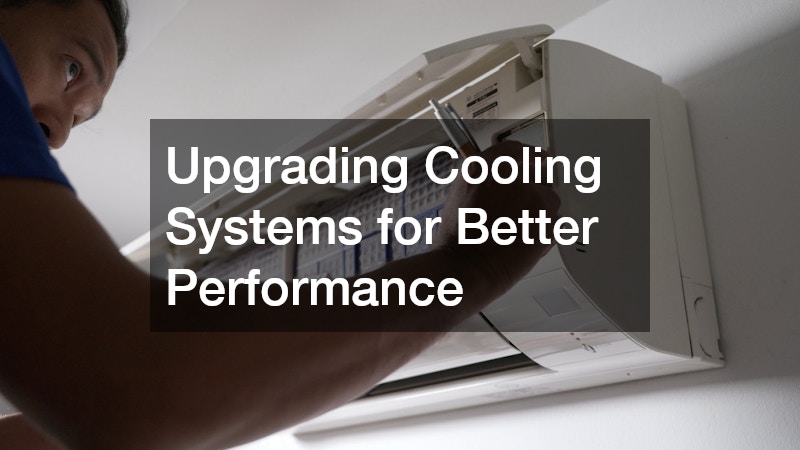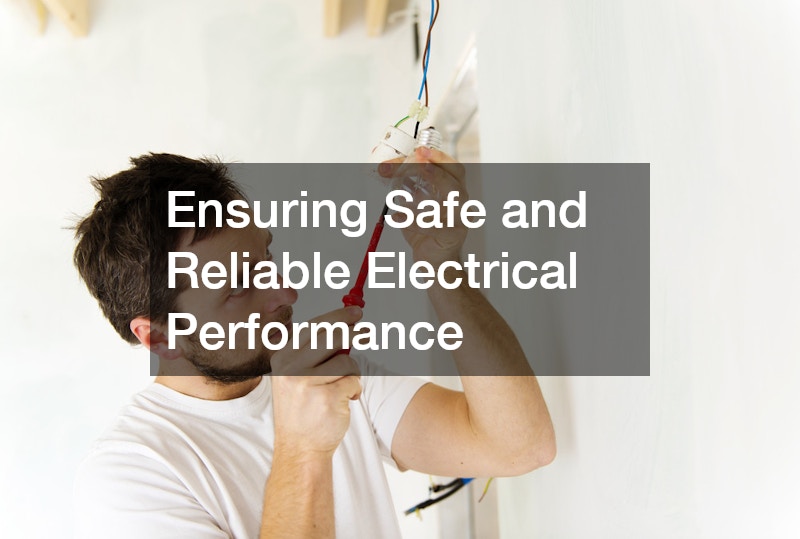Maintaining a clean, efficient, and structurally secure home is one of the most important responsibilities for any homeowner, and yet it is also one of the most commonly overlooked. Between daily routines, busy schedules, and the constant demands of modern living, it can be easy for essential home care tasks to fall through the cracks. However, a well-maintained home not only keeps your family safe but also helps you avoid unexpected repair bills, increases your property value, and ensures your home continues to run smoothly year after year.
1. Strengthening Your Home’s Structure
The integrity of your home’s structure is the foundation of its long-term health, and knowing when and where improvements are needed can help prevent major issues in the future. Many homeowners focus only on cosmetic upgrades while ignoring the deeper elements that actually support the strength and stability of the property. Investing in structural improvements is one of the best long-term strategies to ensure your home remains safe, durable, and resilient against weather changes and natural wear. This is especially true for homeowners planning to enhance their space with concrete additions, which help improve both aesthetics and functionality by creating stronger surfaces for walkways, patios, garages, and outdoor expansions. Paying attention to cracks, shifts in flooring, moisture intrusion, or uneven settling can help you identify early warning signs before they develop into significant damage. Regular exterior inspections combined with preventive improvements allow you to avoid problems that compromise your home’s footprint and stability. When structural issues arise, addressing them immediately through professional intervention prevents further complications and protects your investment. Ultimately, prioritizing structural maintenance ensures your home remains secure, balanced, and capable of supporting the many additional upgrades you may want to pursue in the future.
2. Preparing Your Property Before Major Projects

Large home improvement projects often require significant preparation before any work can begin. Many homeowners don’t realize that major renovations, outdoor upgrades, or utility installations depend on the health and readiness of the surrounding property. Before adding new features or expanding existing structures, it is essential to ensure the landscape, soil, and underground systems are properly assessed and prepared. This is particularly important when coordinating an excavation service, which ensures that the ground is safely cleared, leveled, or reshaped to support future work. Excavation helps homeowners avoid accidental damage to buried pipes, electrical lines, or irrigation systems while creating a stable foundation for new enhancements. It also allows contractors to address drainage problems, soil erosion, and grading issues that could otherwise compromise the success of an upcoming project. Whether preparing for a new patio, garden redesign, drainage system, or structural expansion, careful property preparation can dramatically affect the durability and longevity of the final results. By taking time to prepare the landscape correctly, you ensure your home improvements are safe, compliant with local regulations, and built on a strong foundation that can withstand time and weather. Proper site preparation minimizes risk, reduces long-term maintenance, and provides a smoother, more efficient renovation process overall.
3. Managing Water Systems and Preventing Costly Damage
Your home’s plumbing system plays a crucial role in daily comfort, convenience, and sanitation, making its ongoing maintenance a top priority for overall home health. Many homeowners wait until something goes wrong before addressing water-related issues, but proactive care can significantly reduce the likelihood of emergencies. Leaks, corrosion, changes in water pressure, and slow drains can all point to early signs of deeper problems within your pipes or fixtures. Addressing these issues early prevents serious damage to walls, floors, and foundational structures. When plumbing repairs are handled quickly and efficiently, homeowners avoid the expense and stress of dealing with water damage, mold, or extensive system replacements. Regular inspections of fixtures, appliances, and hidden water lines can also help identify problems before they escalate. For homes with older plumbing systems, updating outdated materials may prevent long-term issues and improve water flow efficiency. Additionally, routine maintenance of water-dependent appliances such as dishwashers, washing machines, and water heaters contributes to a healthier, more reliable home environment. By staying alert to warning signs and responding promptly to concerns, homeowners can maintain a strong and efficient plumbing system that supports the entire property and reduces overall repair costs over the life of the home.
4. Improving Indoor Cleanliness and Air Quality

Cleanliness is a key component of a healthy home environment, yet many homeowners overlook areas that collect dust, dirt, and allergens. Regular cleaning habits help maintain fresh air, reduce respiratory irritants, and improve the overall comfort of your living spaces. While surfaces, floors, and common areas receive frequent attention, deeper cleaning tasks often require specialized care. One often forgotten element of home upkeep is area rug cleaning, which helps remove embedded dirt, hidden pollutants, pet dander, and airborne particles trapped in thick fibers. Since rugs act as natural filters, they accumulate more debris than most homeowners realize, and failing to clean them regularly can reduce indoor air quality and contribute to allergies or odors. Deep cleaning also extends the lifespan of your rugs and protects the flooring underneath them. Prioritizing tasks such as duct cleaning, vacuuming high-traffic areas, and washing fabrics also helps maintain a healthy indoor environment. Even small improvements such as replacing air filters or using proper ventilation when cooking can make a noticeable difference in air quality. By adopting a consistent cleaning routine and addressing deeper cleaning needs occasionally, you create a fresher, more comfortable home environment that directly enhances your overall well-being.
5. Enhancing Comfort and Temperature Control
Maintaining a comfortable indoor temperature is essential to enjoying your home throughout every season, and this begins with ensuring your heating and cooling systems are functioning properly. Reliable temperature control not only improves comfort but also plays a major role in energy efficiency and long-term utility costs. One way homeowners can ensure proper system performance is through regular inspections and servicing from heating contractors who understand how to keep heating systems running smoothly. These professionals evaluate furnaces, boilers, heat pumps, and ventilation systems to identify signs of failure, inefficiency, or safety hazards. Routine care helps prevent unexpected breakdowns during extreme weather, which is especially important for homes located in climates with harsh seasonal changes. By staying proactive with system maintenance, homeowners can maintain more consistent indoor temperatures and avoid costly emergency repairs. Ensuring that your home’s insulation, ductwork, and thermostat settings are functioning optimally also enhances overall system efficiency. When your heating system operates at peak performance, your home remains comfortable regardless of outside conditions, and your energy usage stays as efficient as possible. Investing in seasonal tune-ups, proper filter maintenance, and airflow evaluation ultimately contributes to a more reliable, healthy, and comfortable home environment year-round.
6. Upgrading Cooling Systems for Better Performance

When temperatures rise, homeowners rely heavily on their cooling systems to maintain a comfortable living environment. A properly functioning air conditioning system not only improves comfort but also prevents heat-related health issues and reduces strain on other home systems. While many homeowners remember to clean filters or adjust thermostat settings, upgrading cooling equipment is sometimes necessary to maintain peak efficiency. One of the most impactful improvements is scheduling a professional ac installation when older systems become too inefficient or expensive to repair. Installing a new unit provides more consistent cooling, improves energy efficiency, and reduces utility costs. Modern systems also come equipped with smart technologies that offer better control over temperature settings and indoor air quality. Proper installation ensures the system has adequate airflow, correct sizing, and safe electrical connections, all of which contribute to long-term performance. In addition to installing new equipment, homeowners should ensure that ductwork is properly sealed, vents remain unobstructed, and outdoor units are maintained free of debris. Regular care and upgrades help prevent premature wear on mechanical components and reduce the risk of system failure during extreme heat. Taking these steps ensures your home remains cool, efficient, and comfortable throughout the warmest months of the year.
7. Protecting Your Home’s Foundation
Your home’s foundation is one of the most critical aspects of its structural health, and maintaining it requires ongoing attention to both visible and hidden warning signs. Changes in soil moisture, seasonal temperature fluctuations, and natural settling can all impact the condition of your foundation over time. Homeowners should regularly inspect their property for signs of trouble, such as cracks in walls, uneven floors, sticking doors, or moisture intrusion. Addressing issues promptly can help prevent more extensive damage that may require costly repairs. When foundation problems develop, working with professionals who specialize in foundation repairs ensures that your home receives the correct treatment based on structural needs. These experts evaluate the cause of the issue, recommend suitable reinforcement methods, and implement solutions that improve long-term stability. Preventive care can also play a major role in protecting your foundation. Ensuring proper water drainage, maintaining gutters, grading soil correctly, and managing landscaping can all reduce excess pressure or moisture near the home’s base.
8. Maintaining a Safe and Efficient Waste System
A home’s waste and drainage system is often overlooked until a problem arises, yet it is essential for keeping your living environment clean, safe, and functional. Proper waste management prevents odors, backups, and potential health hazards, particularly for homes that rely on septic systems. Regular inspections and maintenance allow homeowners to identify early signs of trouble before major issues develop. One of the most effective ways to maintain a healthy system is scheduling a septic tank pumping service, which helps remove buildup that naturally accumulates over time. Proper pumping prevents overflow, protects drain fields, and ensures your system continues functioning efficiently. Simple habits such as avoiding grease disposal down drains, using water efficiently, and choosing septic-safe products also contribute to overall system health. Homeowners should be mindful of changes in slow drainage, unpleasant odors, or unusual lawn wetness, as these can indicate underlying issues requiring immediate attention.
9. Ensuring Safe and Reliable Electrical Performance

Electrical systems are essential to nearly every aspect of modern living, supporting appliances, lighting, technology, and home comfort systems. Yet many homeowners underestimate the importance of routine electrical maintenance and safety checks. Faulty wiring, overloaded circuits, and outdated panels can create fire hazards or cause frequent power disruptions. Regular inspections help homeowners identify early signs of trouble, such as flickering lights, tripped breakers, or overheating outlets. When issues arise, turning to residential electricians ensures that repairs and upgrades are completed safely and in compliance with current electrical codes. These experts can assess the entire system, replace damaged wiring, improve electrical load capacity, and install safety enhancements that protect your home and family. Upgrading lighting fixtures, installing surge protection, and adding properly grounded outlets also contribute to improved functionality. For older homes, panel upgrades or rewiring may be necessary to support the increased electrical demands of modern electronics and appliances. By prioritizing electrical safety and efficiency, homeowners maintain a secure environment while enjoying consistent, dependable access to the power their household requires.
10. Protecting Your Home From Weather Damage
Weather can significantly impact the health of your home, especially when roofing materials begin to age or deteriorate. Your roof is the first line of defense against rain, snow, wind, and heat, and its condition plays a major role in protecting the interior from damage. Regular inspections help homeowners identify early signs of wear, such as missing shingles, granule loss, moss growth, or water stains. Addressing these issues promptly reduces the risk of leaks, mold growth, and structural damage. When more extensive care is needed, working with residential roofing companies ensures your roof receives expert repairs, proper installation, and long-lasting materials. Professionals can assess storm damage, replace failing components, and recommend solutions tailored to your home’s age and local climate. Maintaining gutters, trimming nearby tree branches, and improving attic ventilation also help extend the lifespan of your roof. Seasonal checkups and preventive care create a stronger barrier against weather-related deterioration and protect your home’s structure from unnecessary damage. With the right attention, your roof will continue to safeguard your home year after year.
A healthy home requires ongoing care, proactive improvements, and an understanding of how each system contributes to the overall function of your property. By paying attention to structure, cleanliness, utilities, and weather-related risks, you can prevent small issues from developing into major and costly problems.




